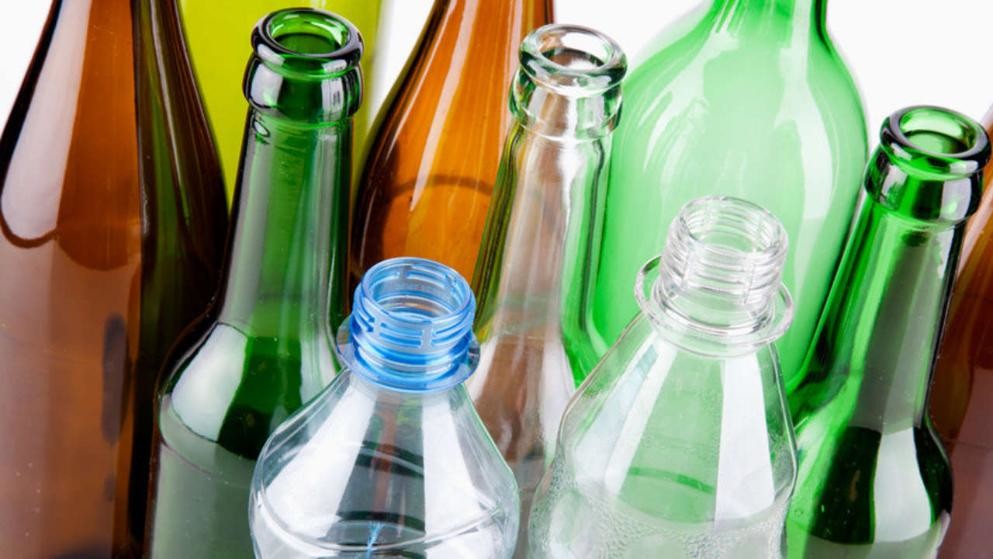
What goes round, comes round; the business case for "pfand" in the UK and Ireland.
Somewhere in Germany last summer you buy a bottle of water (or sparkling San Pellegrino lemon, a personal fav) and discover that the price of 75 cents indicated on the label on the shelf goes to €1 at the till. You ask the cashier why. He said is the pfand (deposit), and shows me the little label on the back of the can. When you are done drinking it, bring it back and we will return you pfand he says.
You know Germans do everything well thought and their logic is irrefutable. After you finish your drink you can return your can/bottle to any shop or supermarket and get paid back your pfand. This applies to all aluminium cans, plastic and glass bottles. You can get your money in cash or a voucher to redeem when paying up for your groceries. Impeccable.
Pfand goes from 25 cents on the euro for a can or plastic bottle to 50 cents for your 1,5 litres glass bottle of Bier. It is a small incentive, but it does make sense to put the onus on the consumer to bring back their empties on their shopping trips. It is a sexy idea too if you are a budget constrained council trying to save some money. Less volume of municipal waste in public bins + home recycling = less truck trips, less fuel, less waste charges and less carbon emissions. And, added benefit, probably less waste will be found on river banks and highways.
“In Europe, we currently use 16 tonnes of material per person per year, of which 6 tonnes become waste. Although the management of that waste continues to improve in the EU, the European economy currently still loses a significant amount of potential 'secondary raw materials' such as metals, wood, glass, paper, plastics present waste streams .” EU commission.
I also like the idea that producers have to think carefully when designing packaging. Weight, material, energy intensity and post-use process become part of the equation. That is a strong incentive to think differently on the waste hierarchy, and circular economy.
Waste management plans and the circular economy
In line with EU objectives all EU and EEA countries had to produce national waste management plans (zero to landfill by 2030, improve recycling and re-use rates, etc) from a 1995 baseline. Note that waste is a complex chain. We produce industrial waste, construction waste, clinical waste, radioactive waste, food waste, electrical waste, etc. Each stream has a complete different treatment and not all waste is salvageable, but most is.
The UK deals with waste in a number of ways: 40% of household waste being recycled, 52 % of commercial and industrial waste recycled or reused and 55% of local waste is sent to landfill sites. Source: gov.uk
Most councils are running consultations on waste action plans, because as IEMA has been highlighting for years, it is a resource. Waste is energy, raw materials and possible animal feed. National Geographic ran an exposé on food waste, and a couple of statistics pinched me: a third of all our food is wasted and if food waste were a country, it will be the third biggest emitter of carbon dioxide.
Waste management is big business. The UK waste management market is now worth over £9 billion, compared to the German €50 billion (£43 billion) turnover. There is much to gain here. As they say in Yorkshire: "where there's muck, there's brass."
Pfand that pack
Fast forward. Warwick, a sunny autumn morning. I am reading an article in The Environmentalist by John Barwise that explains how extending waste responsibilities to the producers by means of a levy could support achieving government waste objectives and the circular economy. Light-bulb moment. Lets implement a pfand system in the UK and Ireland. Councils could save money on the collection, no extra taxes for producers, onus on greening consumers as well as producers. What do you think?
More information: http://ec.europa.eu/environment/waste/ and http://ec.europa.eu/environment/waste/ and UK policies https://www.gov.uk/guidance/waste-legislation-and-regulations and investment opportunities https://www.gov.uk/government/publications/waste-management-in-the-uk-investment-opportunities/waste-management-in-the-uk-investment-opportunities
* I could not find information on the size of the industry in Ireland, if someone has official statistics please do add a comment.
Senior Consultant @ Hillmont Associates | ESG, Sustainability, Environmental Management, Auditing
6yI was reading an interesting idea about ocean plastic harvesting to make it commercially attractive to recycle plastic in the ocean. Any thoughts anyone?
--
7yGreat article! I hope many people will read it and take the idea on board. Now, this planet needs us as much as we need it.
Head of Science.Lab and Head of Focus International Market Strategies for SMEs
7yThe Pfand system in Germany is not comprehensive, even some retailers like Alnatura, ecologically aware grocer, sell products you would expect to have a Pfand, but don't, which has puzzled me for some time. But recycling picks up these products and is also extremely well organised.